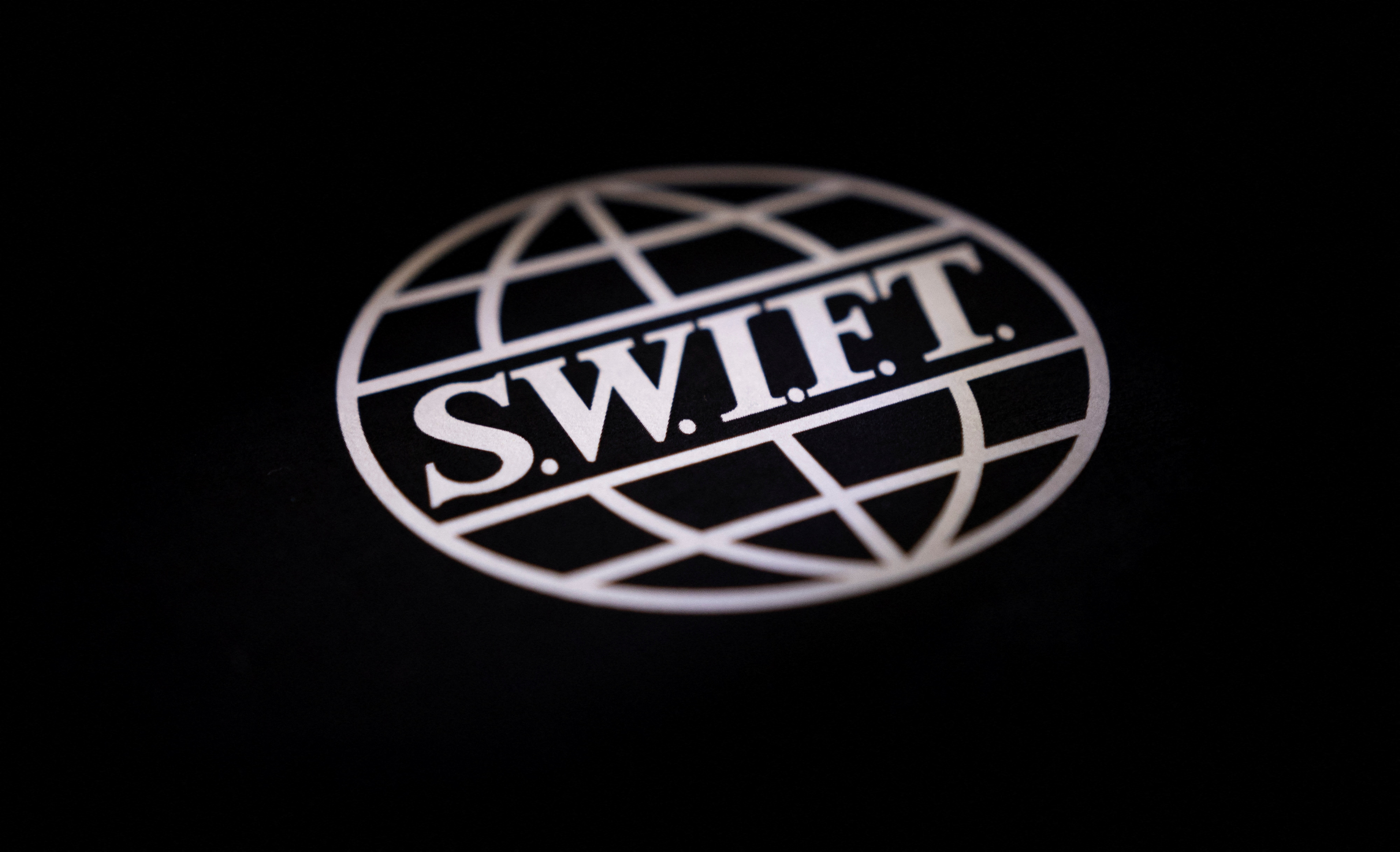[ad_1]

Swift logo is seen in this illustration taken, Bosnia and Herzegovina, February 25, 2022. REUTERS/Dado Ruvic/Illustration Acquire Licensing Rights
Sept 8 (Reuters) – A Russian Agricultural Bank subsidiary in Luxembourg could immediately apply to SWIFT to “effectively enable access” for the bank to the international payments system within 30 days, the United Nations told Russia in a letter, seen by Reuters on Friday.
“SWIFT has confirmed that RSHB Capital S.A. would be eligible to apply for membership and access to SWIFT for food and fertilizer transactions, based on its current status as an issuer of debt securities,” U.N. Secretary-General Antonio Guterres told Russian Foreign Minister Sergei Lavrov on Aug. 28.
Guterres outlined four measures that the United Nations could facilitate to improve Russia’s grain and fertilizer exports in a bid to convince Moscow to return to a deal that had allowed the safe Black Sea export of Ukrainian grain.
He told Lavrov that the U.N. was immediately ready to move on all measures “based on the clear understanding that their realization will lead to the Russian Federation’s return to the Black Sea Initiative and the full resumption of operations.”
The Russian Foreign Ministry expressed skepticism in a statement on Wednesday at the proposals made by Guterres.
“Instead of actual exemptions from sanctions, all Russia got was a new dose of promises from the UN Secretariat,” it said. “These recent proposals do not contain any new elements and cannot serve as a foundation for making any tangible progress in terms of bringing our agricultural exports back to normal.”
Russia quit the deal in July, a year after it was brokered by the U.N. and Turkey to combat a global food crisis that the U.N. said was worsened by Russia’s February 2022 invasion of Ukraine. Ukraine and Russia are both leading grain exporters.
SWIFT ACCESS
Moscow had complained that its exports faced obstacles and not enough Ukrainian grain was going to countries in need under the Black Sea deal. Ukraine exported nearly 33 million metric tons of grains under the pact, which the U.N. said benefited poor states by helping lower food prices more than 20% globally.
Russia’s grain and fertilizer exports are not subject to Western sanctions but Moscow said restrictions on payments, logistics and insurance have been a barrier to shipments.
A key Russian demand has been the reconnection of the Russian Agricultural Bank, Rosselkhozbank, to the SWIFT international payments system. It was cut off by the European Union in June 2022 after Russia’s February invasion of Ukraine.
Guterres said from an operational standpoint, the UN proposal would see the RAB subsidiary essentially act as an intermediary between global financial institutions and RAB in Moscow. The subsidiary would be able to exchange messages on SWIFT with global banks. It could then pass those messages to RAB on the Russian messaging system called SPFS.
“SWIFT has already confirmed that an expedited application process could be possible, bringing the time for effective access within 30 days,” Guterres wrote.
INSURANCE FOR RUSSIAN EXPORTS
Guterres also said a U.N. co-sponsored Insurance Facility for Russian food and fertilizer exports could be finalized with Lloyd’s of London [RIC:RIC:SOLYD.UL] and a lead underwriter “to be ready for operationalization within 4-6 weeks.”
“The Facility will provide key insurance products for exports of Russian food and fertilizer, beginning with cargo insurance, and potentially expanding to also include hull and P&1,” Guterres wrote.
The United Nations would support the platform by helping increase the number of market participants “with the ultimate goal of bringing down insurance costs for Russian exporters.”
Lloyd’s CEO John Neal also told Reuters on Thursday that Lloyd’s was in talks with the United Nations over providing insurance cover for Ukrainian grain shipments if the Black Sea grain deal can be revived.
Guterres also told Lavrov that the United Nations could continue to help unblock assets related to Russian fertilizer companies in the European Union, but he said Moscow needed to provide a list of specific accounts or assets and an agreed benchmark needed to be set.
Russian fertilizer companies would also have to apply to national authorities within the EU for exemptions and the U.N. would engage with the EU on those requests.
The fourth measure outlined by Guterres was a U.N. willingness to further explore ways to facilitate access to EU ports for Russian vessels carrying agricultural products.
“Engagement has already taken place with the European Commission and select port authorities (Germany, Belgium, Spain, Netherlands) to assess the current state,” he wrote. “The United Nations can help clarify the authorization process for different EU ports and work with Russian counterparts on obtaining the authorizations/permits pre-departure, if required.”
Reporting by Michelle Nichols; Editing by Chizu Nomiyama
Our Standards: The Thomson Reuters Trust Principles.
[ad_2]
Source link
